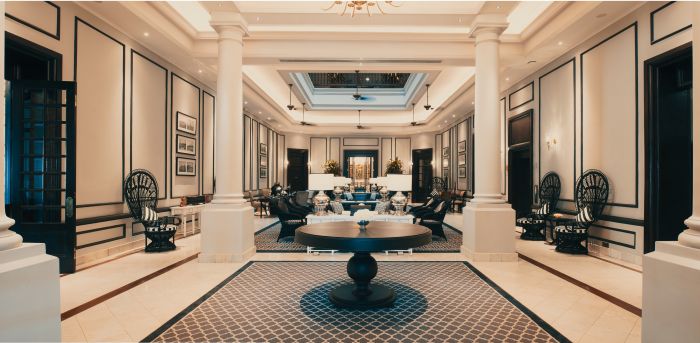
I love traveling to destinations that have recently been unlocked for the world. Last year I spent time in Cuba, and previously, I trekked across Bhutan. When a country is just starting to court travelers, it’s the time to go. There’s a distinct wildness, a precious “foreign” feel a place has before globalization and the demands of Western tourists seep in. Myanmar is one such country not yet beholden to the Western tourist. The country has found its way on a number of “hottest” travel destinations, mostly recently on Lonely Planet’s top ten countries to visit in 2017. I quickly booked a trip to explore the country and one of its legendary hotels, The Strand Yangon.
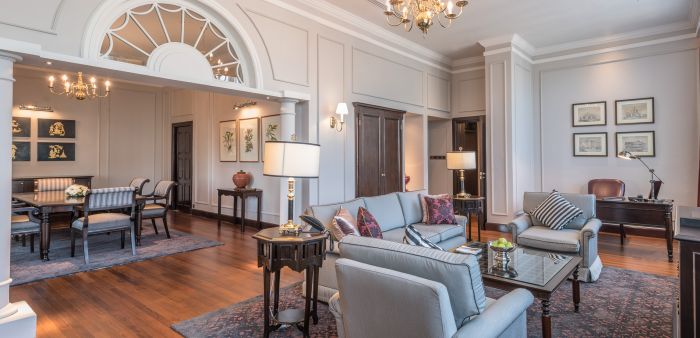
Listed on the Yangon City Heritage List, the Strand Yangon is considered one of the most historic properties of Southeast Asia. The gleaming white hotel opened in 1901 and still upholds its colonial era aesthetic which was influenced by the British rule at the time. Famed Armenian brothers Aviet and Tigran Sarkies designed the Strand along with other colonial icons of Southeast Asia, such as the Raffles in Singapore and the Eastern & Oriental in Penang. For decades, the Strand was regarded as “the finest hostelry east of the Suez” and “patronized by royalty, nobility and distinguished personages,” according to John Murray in his Handbook for Travelers, the equivalent of today’s Lonely Planet guidebooks.
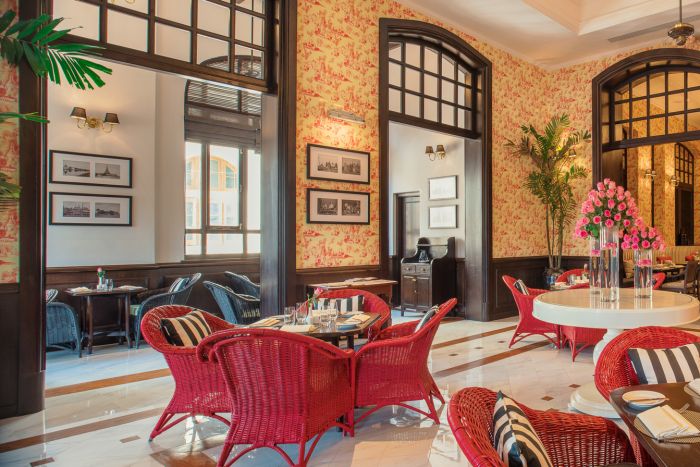
As the property comes into view along the Yangon River, one can nearly smell the proper Brit crispness. It’s a beautiful beacon among the muggy, urban bustle of the city packed from pagodas to shipyards. In November of 2016, the Strand Yangon completed an extensive six-month renovation. I loved the effortless mix of historic preservation alongside vivid modern touches. Traditional Myanmar lacquerware, marble flooring, original artwork, and hand-carved four-poster beds are a few of the historic touches. Teak paneling was delicately restored by hand throughout the hotel, and I noticed the traditional rattan furniture as well.
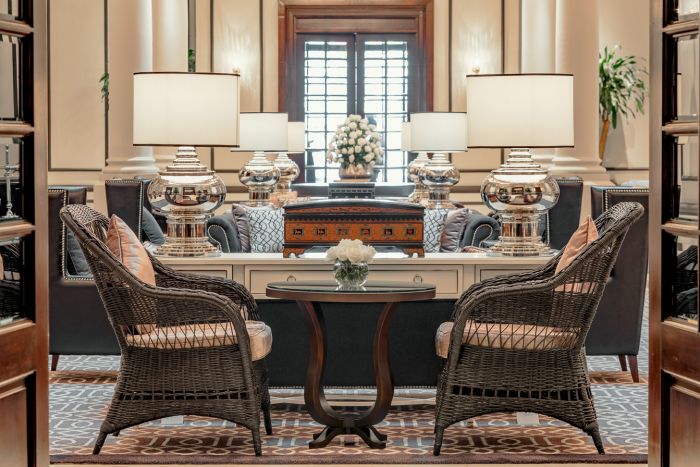
The property’s new managers, GCP Hospitality, along with internationally noted hotel design firm, P49 Design, added the modern, bright flourishes prominent throughout the property. Midnight blue wingback chairs and chrome lamps splash the lobby area with meticulously arranged fresh flowers and a sparkling crystal chandelier. A crimson color palette washes over the handsome (and famous) Sarkies Bar. Bright fuchsia and yellow wall paper custom-made from antique engraved elephant and pagoda prints line the interior of the Strand Cafe. The hotel’s suites, 31 in total and each attended by round-the-clock butlers, have all the high tech touches an international guest would come to expect (USB ports, remote controlled curtains, Bluetooth system), with the elegance of shutter windows, intricately tiled bathrooms, fine Burmese antiques, and saffron colored blankets and pillows. Every time I returned to the hotel after a day of adventures, I felt at once home but also invigorated by the intoxicating foreign charm of The Strand.

One such must-do adventure is with Uncharted Horizons Myanmar, a bike tour company headquartered in Yangon that promises “off the beaten” tours with a focus on eco- and community based tourism. I rode through rural villages, wandered around local market in the Indian village of Dala, and waved to kids as I crossed rice paddies during the five hour “Island and Rivers” tour. Our guide was a local himself and warmly welcomed by the locals during our 17-mile trek.
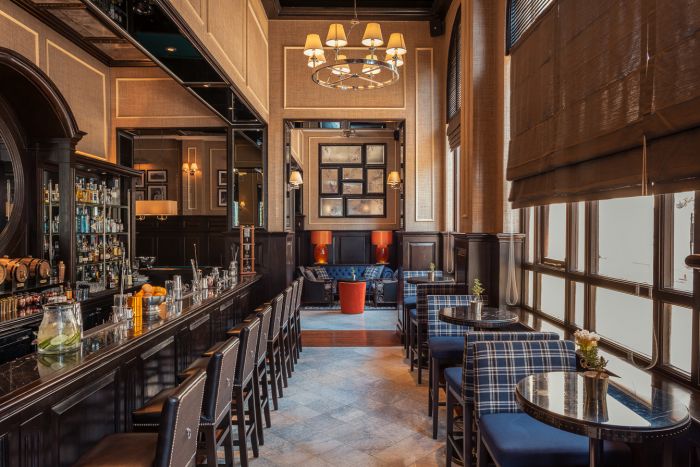
Like the property itself, The Strand’s restaurants and bars are historic meeting places and serve scrumptious cuisine for both Westerners and Burmese alike. The Strand Café serves a hearty breakfast daily (included in a stay for hotel guests) as well as an impressive high tea. Western tea features tarts, smoked salmon, and gingerbread with foie gras terrine, while the Myanmar version includes sticky rice balls, deep-fried bananas, and mushroom tempura. Just a few months ago the Café started serving Sunday brunch, which seems to be a hit already judging by the crowd I spotted one Sunday morning. I spent a number of late afternoons recouping from the heat and sipping milkshakes and malt whiskies in Sarkies Bar, the handsome meeting spot for the likes of 20th century well-heeled globe trotters Sir Noël Coward, Orson Welles, and Rudyard Kipling. Perhaps the most noted dining destination of property is The Strand Restaurant. Now under the helm of Michelin-star trained Executive chef Christian Martena, the stylish Strand Restaurant features Mediterranean dishes with regional produce and spices.
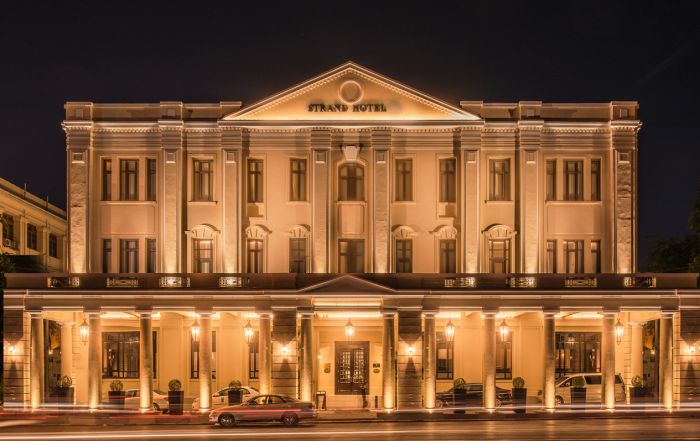
I’ll have to make a return trip later this year, too. In the late fall, the hotel will expand with a spa, terrace garden, and swimming pool. This will allow The Strand to claim that it is the “first luxury urban resort” among its other accolades.
While it will take years and even decades for Myanmar to develop its luxury accommodations for travelers, there’s one stunning urban haven in Yangon sure to beckon another century of travelers: The Strand Hotel.









